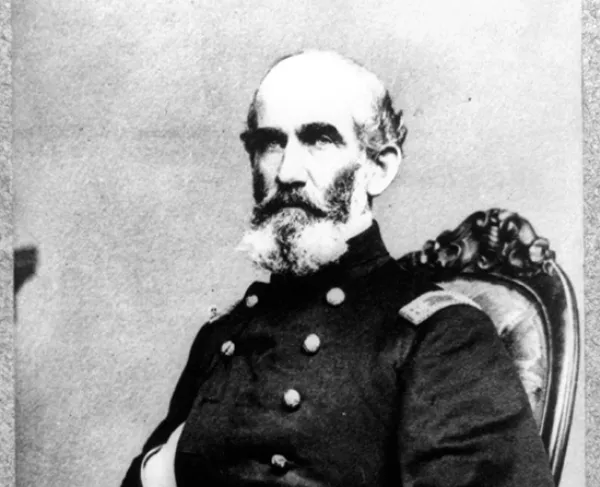Andrew J. Smith

Andrew Jackson Smith graduated 36th in a class of 45 from the United States Military Academy in 1838. He was commissioned into the 1st Dragoons, and served with the unit for 23 years. He fought during the Mexican-American War and served in the frontier of the Southwest, and the Northwest. Smith reached the rank of major by the outbreak of the Civil War.
At the outbreak of the Civil War, he was commissioned colonel of the 2nd California cavalry, but resigned in order to accept the position of chief of cavalry under General Henry W. Halleck. On March 20, 1862, he was appointed a brigadier general of volunteers. Smith took command of a division under General William Sherman at Chickasaw Bluffs in December of 1862. In January of 1863, he was placed in command of a division of the XIII Corps during the battle of Arkansas Post and throughout the Vicksburg Campaign. In the spring of 1864, Smith was promoted to major general and given command of elements of the XVI and XVII Corps of the Army of the Tennessee under General Nathaniel Banks. He led this detached element through the Red River Campaign, and on into Mississippi. While in Mississippi, Smith handed Confederate General Nathan Bedford Forrest his only major defeat, at the Battle of Tupelo. Smith commanded his troops against General Sterling Price when he invaded Missouri. Following Price’s raid Smith returned to Tennessee to take part in the Battle of Nashville against Confederate General John Bell Hood. In 1865, Smith led the reorganized XVI Corps into Mobile, Alabama, and was brevetted to major general in the Regular Army for his actions.





